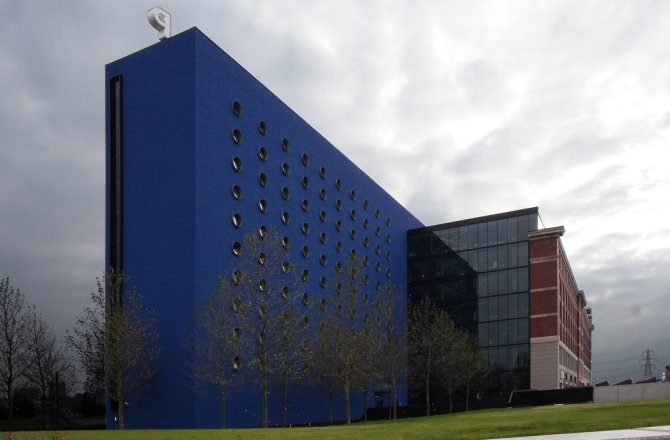Despite a £16m plunge in the value of its property portfolio, Urban Splash — the company behind Birmingham’s landmark Rotunda and Fort Dunlop regeneration projects — has at last crept back into the black.

The Manchester-based firm, which rose to success with the revival of decaying industrial warehouses and Victorian mills, had racked up more than £200m in debts in recent years with its last accounts showing a £15m loss.
Posting its latest results, for the 18 months to the end of September 2013, Urban Splash reports an increase in revenue from of £33.6m to £132.6m — its highest ever — and a pre-tax profit of £50,000. Annualised investment income has also increased by £800,000 to £14.7m.
The improvement was not reflected in its balance sheet, however, which had worsened mainly through a £16.3m downward revaluation of the group’s commercial property portfolio. This, the company pointed out, was an indication of the state of the regional markets during the period in question.
Last year, and toward the end of the accounting period, the 1993-founded developer completed a £135m refinancing deal, largely through two joint ventures with property owner and manager, The Pears Group, and Places for People, to which Urban Splash sold 654 apartments for £77m.
The Pears deal in particular has allowed Urban Splash to continue to restructure its banking arrangements this year and agree new financing on all of its remaining debt including its “Braun” portfolio which contains Fort Dunlop (pictured), at the time the biggest speculative office development outside London. The regenerated iconic tyre factory now houses over 300,000sq ft of office and 45,000sq ft of retail space and a 100-bedroom hotel.
“The last 18 months have been one of the most important in our recent history,” explained chairman Tom Bloxham in his report. “It is a period which has hopefully put Urban Splash on a sound platform for future growth as well as finding a solution to the problems associated with the large debt burden which has beset us since the onset of the financial crisis in late 2008.”
Among its recently completed developments — all of which have been sold or are fully let — are Lakeshore in Bristol, the first phase of Park Hill in Sheffield, and the New Cooperage at the Royal William Yard in Plymouth.
“With our restructure and refinance behind us I believe that, together with our new partners and our established brand, we are in a position to respond to the many opportunities now presented by the property market in the UK,” Bloxham added.
“I hope, having survived the worst economic downturn I can remember, the restructuring of our business, and forming new joint ventures with some very significant and substantial partners, we are now well placed to continue delivering award winning regeneration schemes and exciting, innovative and amazing regeneration projects up and down the country.”